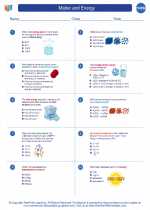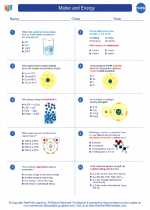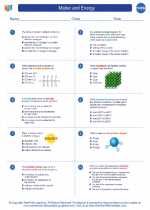Matter and Energy -> sublimation
Sublimation
Sublimation is the process in which a substance transitions directly from the solid phase to the gas phase without passing through the intermediate liquid phase. This occurs when the pressure of the gas phase of a substance is greater than the pressure of its surrounding environment, allowing the solid to vaporize without melting. Sublimation is an endothermic process, meaning it requires the input of energy to break the intermolecular forces holding the solid together.
Key Concepts
- Phase Transition: Sublimation is a phase transition from solid to gas.
- Endothermic Process: Sublimation requires energy input to overcome intermolecular forces.
- Examples: Common examples of substances that undergo sublimation include dry ice (solid carbon dioxide) and mothballs (paradichlorobenzene).
- Applications: Sublimation has practical applications in processes such as freeze-drying and purification of substances.
Study Guide
When studying sublimation, it's important to understand the following key points:
- Describe the process of sublimation and contrast it with other phase transitions (e.g., melting, boiling).
- Identify substances that undergo sublimation and provide examples of each.
- Explain the energy requirements for sublimation and how they differ from other phase transitions.
- Discuss the practical applications of sublimation in various industries and processes.
- Perform calculations related to sublimation, such as determining the energy input required for a given amount of substance to undergo sublimation.
By understanding these concepts and being able to apply them to real-world examples and calculations, you can develop a comprehensive understanding of sublimation and its significance in the field of chemistry.
Feel free to ask if you have any questions!
.◂Chemistry Worksheets and Study Guides High School. Matter and Energy

 Worksheet/Answer key
Worksheet/Answer key
 Worksheet/Answer key
Worksheet/Answer key
